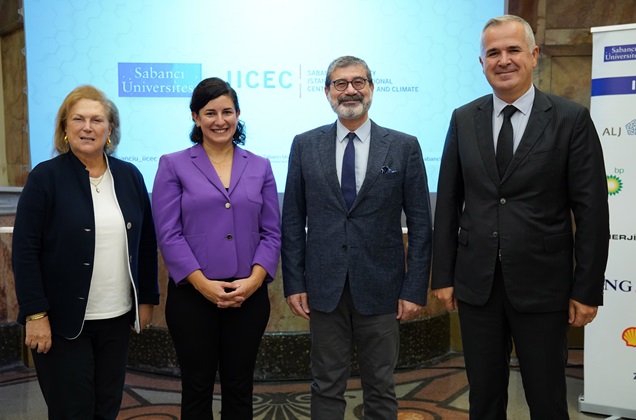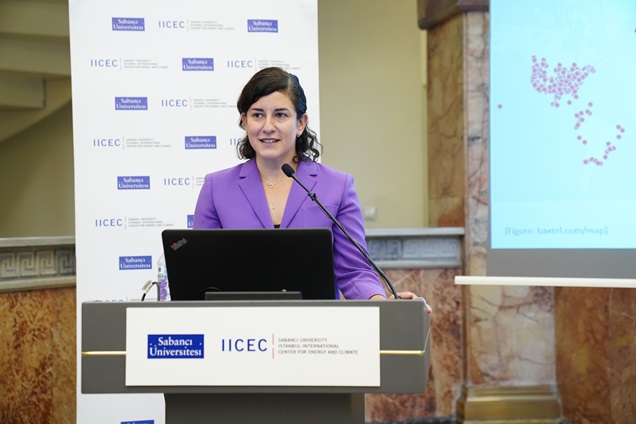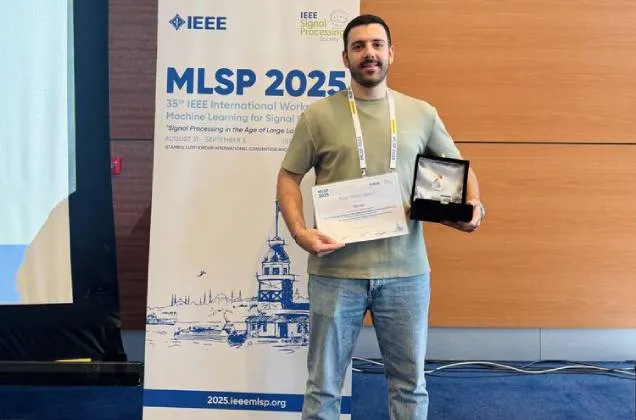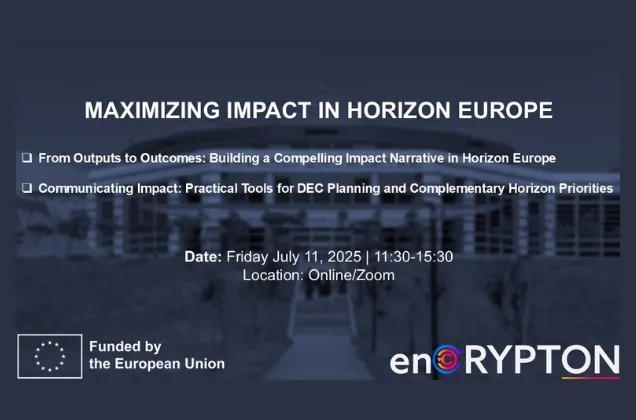19/09/2024
In an effort to support a safer and more efficient energy future, Sabancı University Istanbul International Center for Energy and Climate (IICEC) organized a webinar entitled ‘Datacenter-Grid Coordination for Sustainable Computing’ focusing on new trends and solutions at the intersection of energy and data. In the webinar, Boston University Center for Information and Systems Engineering (CISE) Director Prof. Ayşe Kıvılcım Coşkun, who has undertaken pioneering and innovative studies on these issues, drew attention to the fact that developing innovative solutions for data centers in interaction with energy systems could provide important opportunities to pave the way for a more sustainable future.

Sabancı University Istanbul International Center for Energy and Climate (IICEC), within the framework of its activities guiding the energy sector in the field of energy and climate, organized a webinar with the theme ‘Datacenter-Grid Coordination for Sustainable Computing’ on September 18th. Attended by the Founding Chair of the Sabancı University Board of Trustees Güler Sabancı, Sabancı University President Prof. Yusuf Leblebici, Sabancı Holding CEO Cenk Alper, and leading people from the business world and academia, the webinar featured the speaker Prof. Ayşe Kıvılcım Coşkun, Director of Boston University’s Center for Information and Systems Engineering. Prof. Coşkun shared with the participants the latest trends in the data world and artificial intelligence, the growth in electrification and renewable energy, the strengthening of data-energy interactions as a result of these developments, and the innovative sustainable solutions developed in this field.

In the age of artificial intelligence, the energy consumption and carbon emissions of data centers are increasing rapidly
The effects of the widespread use of artificial intelligence worldwide on energy demand are becoming increasingly evident. New dynamics are emerging in energy demand and interactions with electrical grids thanks to developments in artificial intelligence technology. Stating that each ChatGPT search consumes approximately ten times more energy than a typical Google search, Prof. Ayşe Kıvılcım Coşkun emphasized that as artificial intelligence develops its capabilities such as voice and video creation, this increase will accelerate and its effects on the energy infrastructure will grow.
Pointing out the importance of managing the effects of artificial intelligence technologies on electrical grids due to the high energy demand, Prof. Coşkun shared important information about various developments in the energy system, and other new trends and their impacts on data and energy interactions. Prof. Coşkun drew attention to recent developments in the US, where data centers are experiencing significant growth, and stated that many grids are approaching capacity, which is causing stability issues. She noted that countries around the world are facing a dual challenge of meeting increasing energy demand while also achieving decarbonization goals. In this context, Prof. Coşkun emphasized that the integration of renewable energy sources such as wind and solar into the energy system is of vital importance, and said that the fact that wind and solar energy are not always available is a critical factor. She also stated that the lack of affordable and large-scale energy storage solutions makes balancing demand and supply in the grid even more complicated.
In her speech, Prof. Coşkun drew attention to the importance of “flexible computing” solutions, an innovative approach in the construction of artificial intelligence data centers. She stated that this strategy involves adjusting the information processing speed and capacity of computer systems according to the availability, cost, and environmental impacts of sustainable energy. Thus, data centers becoming “flexible” loads in electrical grids makes it possible to better manage electricity demands and integrate more renewable energy sources into the grid. Prof. Coşkun also emphasized that the development of new flexible computing methods for artificial intelligence data centers could pave the way for a more sustainable future in artificial intelligence technology on a global scale.




